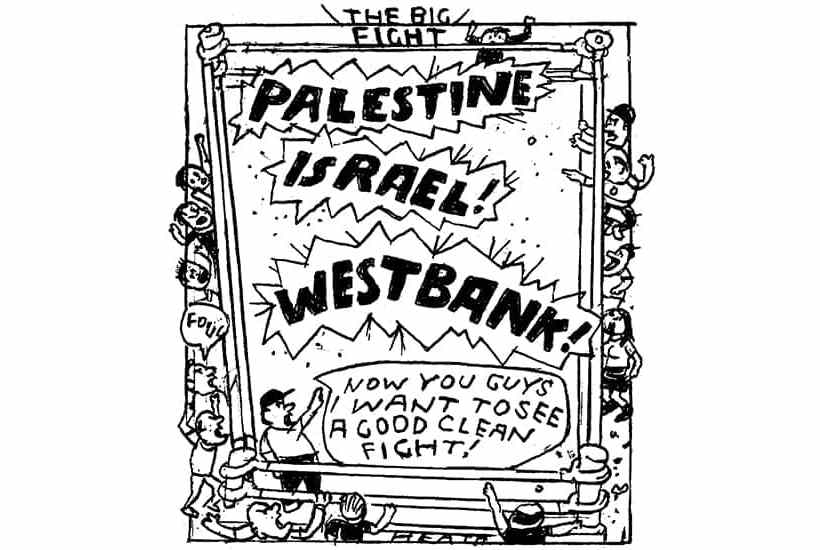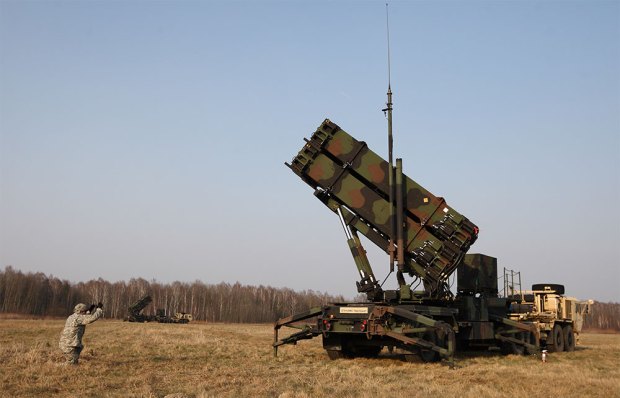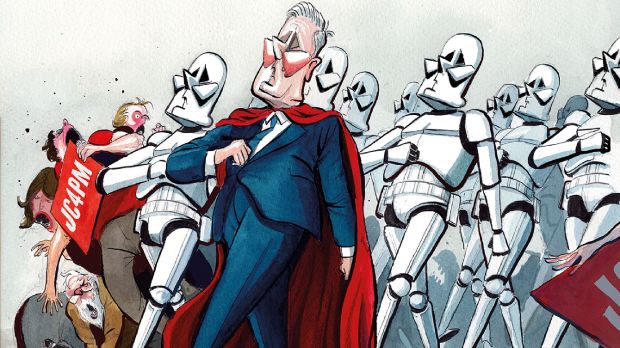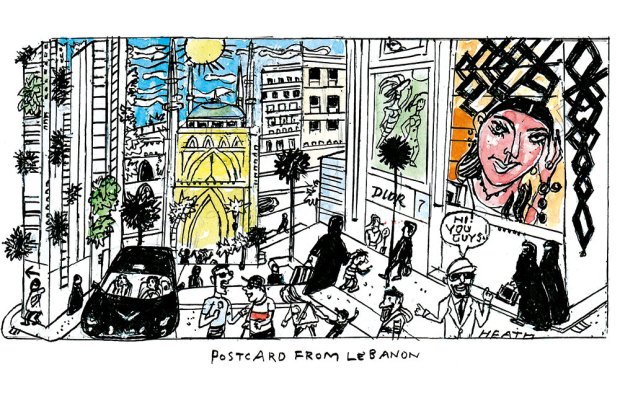From an Israeli army base on the border with Lebanon, I can see the village of Maroun al-Ras. An Iranian flag flies from the dome of the mosque. Nearby, strapped to a post, is a 20ft cutout of the late Iranian general Qassem Soleimani, which was put there earlier this year by Hezbollah after he was killed by an American air strike. His right arm and index finger are stretched out, pointing menacingly over the valley at Israel. Hezbollah, backed by Tehran, control Maroun al-Ras, and I can hear the buzz of a drone watching them.
Some Israeli officials say Iran could have enough enriched uranium for a nuclear bomb in just a few weeks. I’m here with Bicom, the Britain-Israel Communications and Research Centre. In Tel Aviv our small group of journalists meet Issawi Frej, the second Muslim minister in Israel’s history, who is tasked with improving relations with the country’s Arab neighbours. If war does come, Israel wants them on its side. An ebullient head of security escorts us to the minister, telling us in a thick Russian accent about his posting at Israel’s Kensington embassy. ‘I met the very nice man, David Cameron,’ he says. In his office, Frej says two or three more Arab states will follow the United Arab Emirates, Bahrain and Morocco in re-establishing diplomatic ties with Israel by next year. Saudi Arabia is a priority, but the King, like many other Muslims, won’t forgive Israel for taking what he sees as Palestinian land.
In Ramallah, in the West Bank, it is easy to forget the 70-year conflict. The roads are flanked by nail salons, billboards advertising chicken burgers, and a Mercedes-Benz garage. But the situation is especially precarious today. Mahmoud Abbas has clung to the presidency here for 16 years, and the Palestinian Authority (PA), who run the West Bank, cancelled elections again in April. The latest poll says nearly 80 per cent of people want Abbas gone. Hamas would be the favourites to take over.
In a run-down tower block in the city, we meet Ahmad Majdalani, a Palestinian minister, who tells us not to trust the polls. They are used to sway public opinion rather than to measure it. Abbas isn’t going anywhere, he says, and when Israel lets Palestinians in the contested East Jerusalem vote or campaign (Israel hasn’t yet said they will), the government will hold elections and the President will be resoundingly returned to office. ‘We know our people,’ the minister says. ‘We know their psychology.’ I ask what he thinks about Sally Rooney’s recent Israel boycott. ‘Very supportive,’ says Majdalani. ‘This is a traditional Irish position,’ he adds, chuckling, as the lift doors close between us.
That evening, at a restaurant on Mount Scopus overlooking Jerusalem, Hebrew University’s Micah Goodman explains his plan to ‘shrink the conflict’ with the Palestinians. After half a century of trying, ‘we are out of the peace business’, he says. Forget fixing the problem for good — just make the status quo more bearable. Goodman is in constant contact with Prime Minister Naftali Bennett. He yanks our Bicom guide’s notebook and pen from him, and scrawls circles and lines to represent Palestinian villages and motorways. Give the Palestinians control over some new roads, he says, give them access to an airport in Jordan and more land — things that don’t jeopardise Israel’s security. The UAE and Saudi Arabia could even pay for the roads — and tie it in with the Abraham Accords. ‘Tell me if I’ve lost you,’ he says, and gives a long laugh, eyeing each of us in turn. No, we say, go on. Maybe it’s the view, or his intensity and animation, but at the time I’m convinced by the idea. Later, I wish I’d asked whether he wants to keep the Palestinians walled in the West Bank for ever. And what about Gaza?
Maybe Goodman is right, though. For now the status quo is probably the only option. Israel’s eight-party coalition of pro-settlers, left-wingers and Islamists close to the Muslim Brotherhood has a majority of one, and Benjamin Netanyahu, now leader of the opposition, is doing his best to bring them down. In private, Bibi apparently jokes that the only thing keeping the government together is him. A British official says there are two rules in Israeli politics: don’t bet against Bibi and don’t work with him.
In the garden of the British ambassador’s residence in Tel Aviv, cats stalk through the flowerbeds. The house is right next to a feral colony and I’m told it’s our fault: Britain brought cats over in the 1930s to sort out a rat problem, and now there’s thought to be around two million of them. There’s never an easy fix in Israel.
Got something to add? Join the discussion and comment below.
Get 10 issues for just $10
Subscribe to The Spectator Australia today for the next 10 magazine issues, plus full online access, for just $10.
You might disagree with half of it, but you’ll enjoy reading all of it. Try your first month for free, then just $2 a week for the remainder of your first year.














Comments
Don't miss out
Join the conversation with other Spectator Australia readers. Subscribe to leave a comment.
SUBSCRIBEAlready a subscriber? Log in